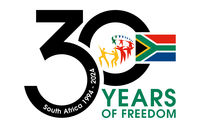Topnews, Südafrika
25. August 2019
REMARKS BY PRESIDENT CYRIL RAMAPHOSA AT THE G7 AND AFRICA PARTNERSHIP, 25 AUGUST 2019, BIARRITZ, FRANCE
Your Excellency, President Emmanuel Macron,
Excellencies, Heads of State and Government,
Ladies and Gentlemen,
This Summit’s focus on reducing inequality is particularly relevant for the G7 and Africa Partnership, because of the severe inequality between the countries of Africa and developed nations, and also because of the levels of inequality within Africa.
Inequality is detrimental to growth and development, and peace and security.
I would like to commend the leaders of the G7 for seeking to reorient its relationship with Africa to tackle these challenges.
Africa has reached an important milestone with the adoption by 55 countries of the Africa Continental Free Trade Area Agreement (AfCFTA).
This free trade area is now the largest on the globe, bringing together 1.2billion people with a combined GDP of $3 trillion.
This will lead to:
- The creation of a single continental market for goods and services, with free movement of business persons and investments
- Expansion of intra-Africa trade, and
- A more diverse, balanced and sustainable export base for African economies.
We are confident that this Free Trade Agreement will unleash Africa’s economic potential and consolidate its position as a new frontier of economic growth and development.
As a flagship of the AU’s agenda 2063, the trade opportunities will engender peace and stability on the continent.
In the context of South-North co-operation, we look forward to G7 countries joining us in a mutually beneficial partnership.
We expect that this Partnership will help Africa realise its potential, through investment and access to markets, capital, technology, and skills.
Our focus at this Summit on the digital economy is equally important.
Through the cooperation we have envisaged here, we can work together to ensure digitisation reduces inequality and supports inclusive economic growth.
The African Union Commission is currently developing a comprehensive Digital Transformation Strategy for Africa that will provide a common, coordinated response to realise the digitisation of the continent.
This will lay the basis for the development of infrastructure and the institutions we need to maximize the opportunities presented by the fourth industrial revolution.
It will also unleash the African spirit of enterprise and creativity and will generate more homegrown digital solutions and content.
We are therefore looking forward to developing concrete initiatives through the G7 Africa partnership that will support Agenda 2063 and the digital transformation of Africa.
I thank you.


